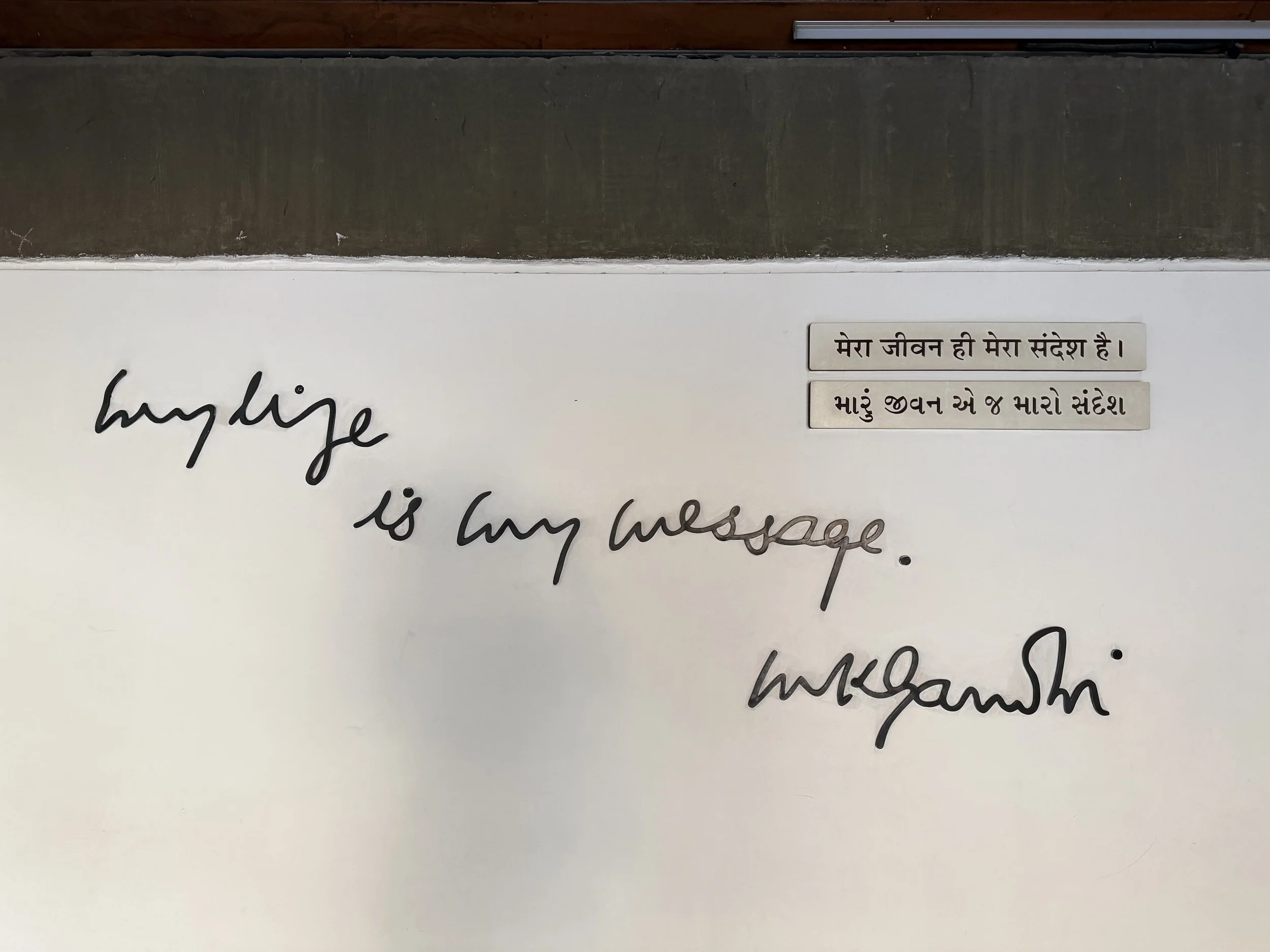
The Measure of Dignity
A visit to the Gandhi Ashram prompted a reflection on human dignity as a standard by which law, education, and power must be measured. Drawing connections between international education, legal systems, immigration enforcement, and global violence, this asks what happens when dignity becomes conditional, procedural, or invisible.

Ins and Outs for 2026
An Ins and Outs list for 2026 on international education, ethics, student support, and what actually deserves our energy.

The Longest Night
The winter solstice reminds us that hope, like sunlight, remains constant. We're simply farther from it sometimes. Unlike the solstice's inevitable return to light, political change requires human agency.

Podcast Episode!
I was delighted to join Zac Macinnes from Worldstrides for a conversation about global learning, education abroad, and the impact it makes on campus. Check out all the episodes on Spotify or wherever you get your podcasts!

No Longer Sand
A recruitment tour across Doha, Kuwait City, Muscat, and Dubai becomes an unexpected journey through loss, memory, and purpose. Reflections on international education, grief, and finding meaning in the work and the moments that connects us.

The Death of English: How AI Can Dismantle Education’s Gatekeeping Tongue
For decades, English proficiency tests have served as the primary gatekeeper to international education, generating billions for testing companies while shutting out brilliant students worldwide. But AI translation technology is poised to shatter this monopoly. With real-time translation achieving near-human accuracy and schools beginning to pilot multilingual instruction, the question isn't whether English requirements will become obsolete, but how quickly universities will adapt. The colonial-era language hierarchy that privileges English above all else faces its greatest challenge yet: technology that makes any language equally accessible. Universities clinging to English-only requirements risk being left behind as students migrate to institutions that value multilingual competence and embrace AI-mediated learning.

Rhythm Over Balance
We talk about work–life balance as if it's a destination, something that can be reached. The problem is that international education doesn't move in straight lines. Our work is global, unpredictable, and constant. Balance, in our world, is a myth. Rhythm is survival. Rhythm is how we preserve humanity in a system that demands speed, empathy, and precision all at once.

A Critique of “Soft Skills”: Why Higher Education Must Claim Human Skills in the Age of AI
The rise of AI makes it clear: the most valuable skills are not technical, but human. Often mislabeled as “soft,” skills like empathy, adaptability, and collaboration are foundational, critical, and human skills required for learning and employability. Higher education must use a common language, reclaim their value, embed them across the curriculum, and ensure students graduate ready to lead in a world AI cannot fully replicate.

Restoring Student Agency in Global College Decisions
Two weeks ago, a student in Chennai asked me if she should study music or engineering. Her question exposed a truth we avoid: we've built an international education system where every stakeholder profits from student passivity, except the students themselves. Private equity owns platforms. Agents work off commission. Universities measure success in enrollment numbers, not student fulfillment. It's time to name the problem and reclaim student agency in global education.
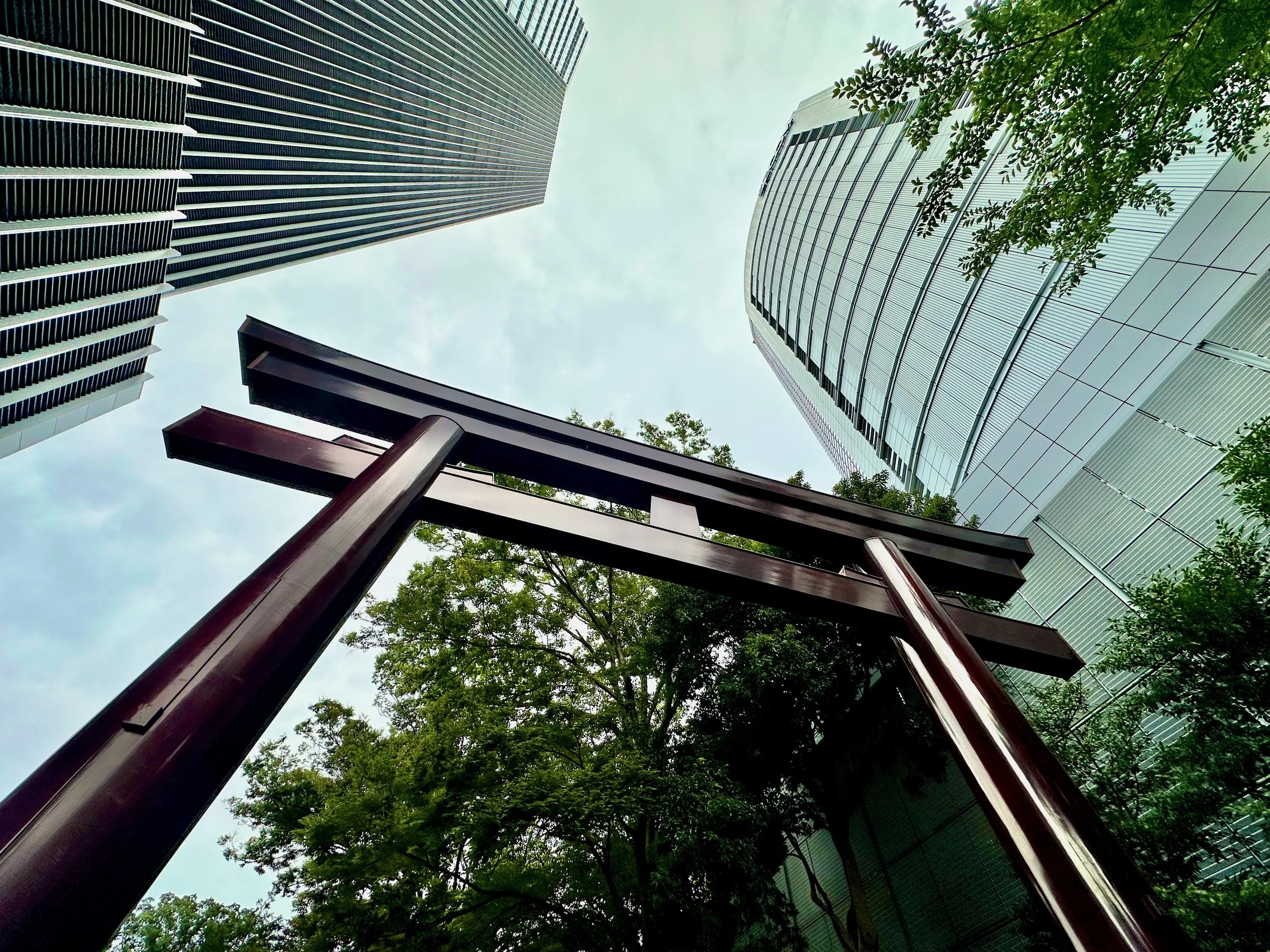
Full Circle
Ten days in Japan became a study in cycles. SIIEJ in Kyoto, long walks in Tokyo, and breakfast with a Croft friend reminded me that global education is not only policy and programs, it is the patient work of becoming.

What A Privilege
Back from Italy, I reflect on the privilege of movement, the serendipities that connect generations, and what it means to carry a duty of care for students. A small meditation on access, safety, joy, and gratitude.
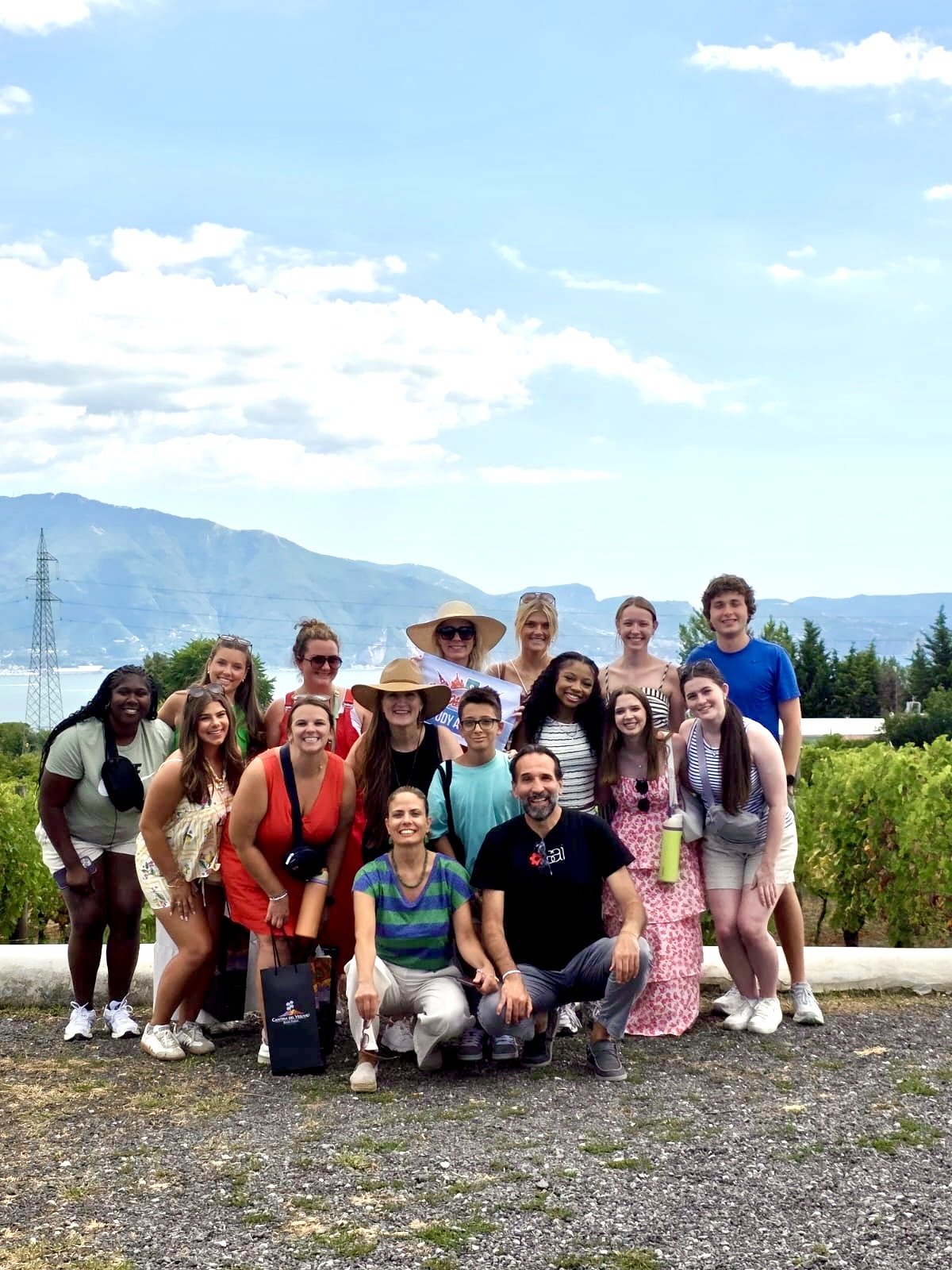
Mid-Program Reflection from 🇮🇹
Halfway through Italy, our pre-health students are shifting from observers to participants. Connection over speed, healthcare as a window to values, and walking that reveals accessibility gaps. I reflect on faculty support, pre-departure prep, and what Rome and Florence might teach next.

My Digital Carry-On
From ChatGPT and Google Lens to Evernote and iTranslate, here’s what lives in my digital carry-on. These AI tools help me plan, translate, take notes, and work on the move so the logistics quiet down and I can be present with students and place.
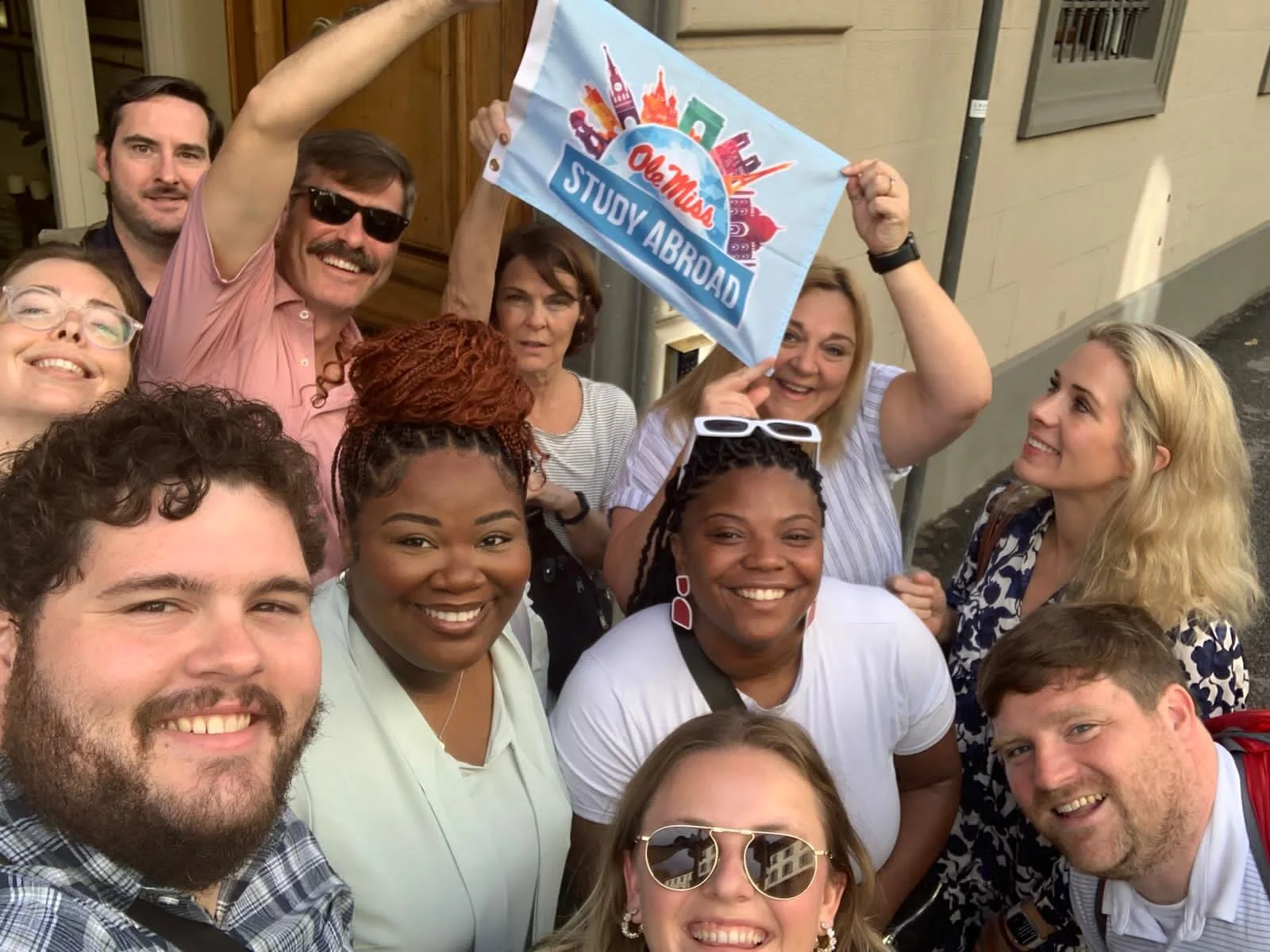
Pack Light, Wear Many Hats
Next week I head to Italy as resident director for a faculty-led program on comparative health disparities. This piece lifts the curtain on what faculty leaders juggle, why co-creating with SAI matters, and how the IDI helps us measure intercultural growth.

Humor Across Borders
Humor is one of the most surprising bridges in global education. From Monty Python to tree tomatoes, I explore how laughter builds empathy, supports language learning, and where jokes can misfire without context, offering practical ways to use humor with care in the classroom.

Faith’s Mile
Watching Faith Kipyegon chase a sub-4 mile in Paris, I saw a bigger story than records. Courage over perfection, non-linear paths, and lessons for students who are told to play it safe. International education should make room for risk, meaning, and becoming.

The Myth of “Best Fit”: Why Students Deserve Better Advice
“Best fit” often sells more than it serves. I examine who benefits from the slogan, how it can mask bias, and what to ask instead: purpose, mutual alignment, and real support. Students deserve transparency on outcomes and costs, and advisors who start by listening.
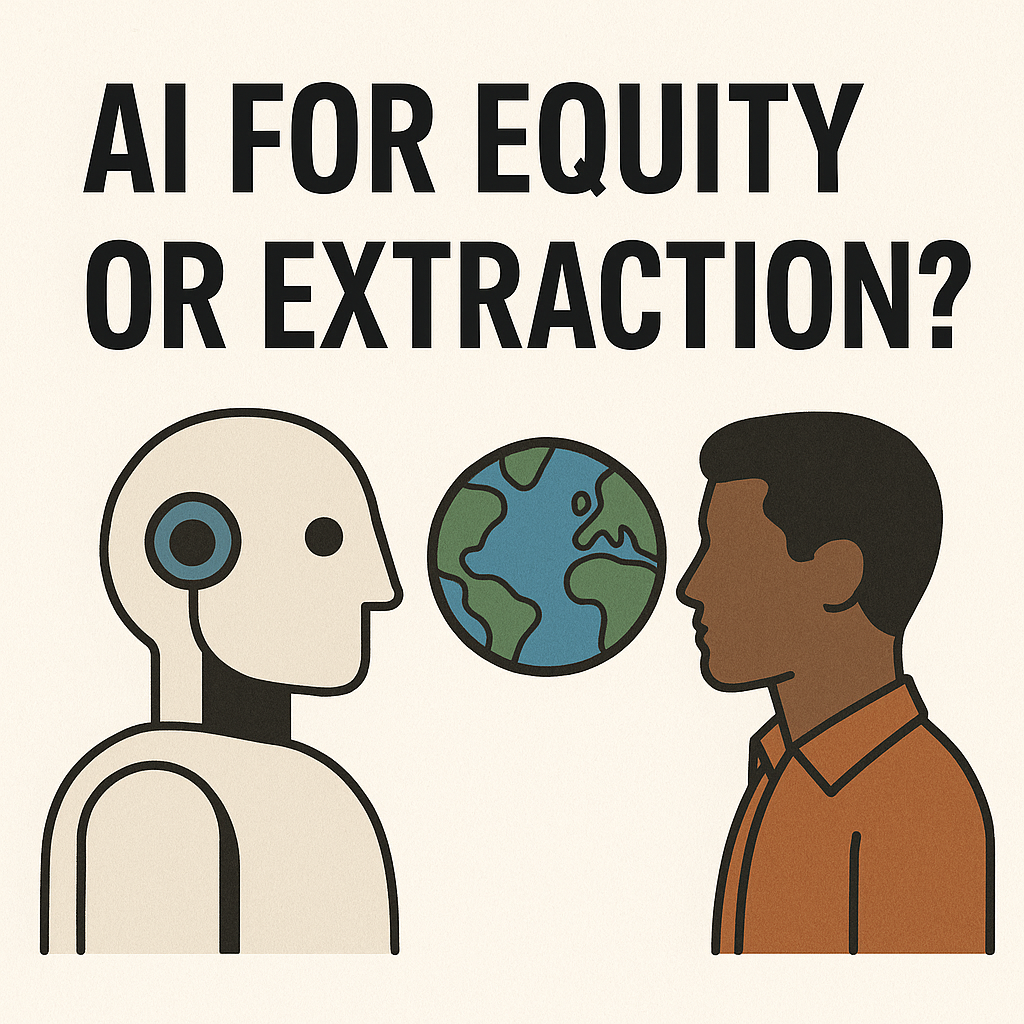
AI for Equity or Extraction?
AI is arriving in international recruitment with promises to optimize and personalize. I ask a harder question: at what cost and to whom? I unpack bias, black-box vendor scoring, and offer three fixes that center equity: transparent data, enforceable procurement terms, and student agency.

The Cost of Coming to America
From application fees and SEVIS payments to administrative processing, visa interviews, and the uncertainty at the border, studying in the United States demands courage and cash. This reflection traces the real costs of a travel ban and urges campuses to meet students with empathy.

Rehabilitation
After Harvard’s SEVP certification was revoked, I argue for rehabilitation over fear. Build quiet consortia, invest in in-house immigration expertise, prepare leadership, document the chilling effects on F and J students, and publish transparent plans. Stop leaning on dollar figures; commit to mutuality, belonging, and coordinated action.

